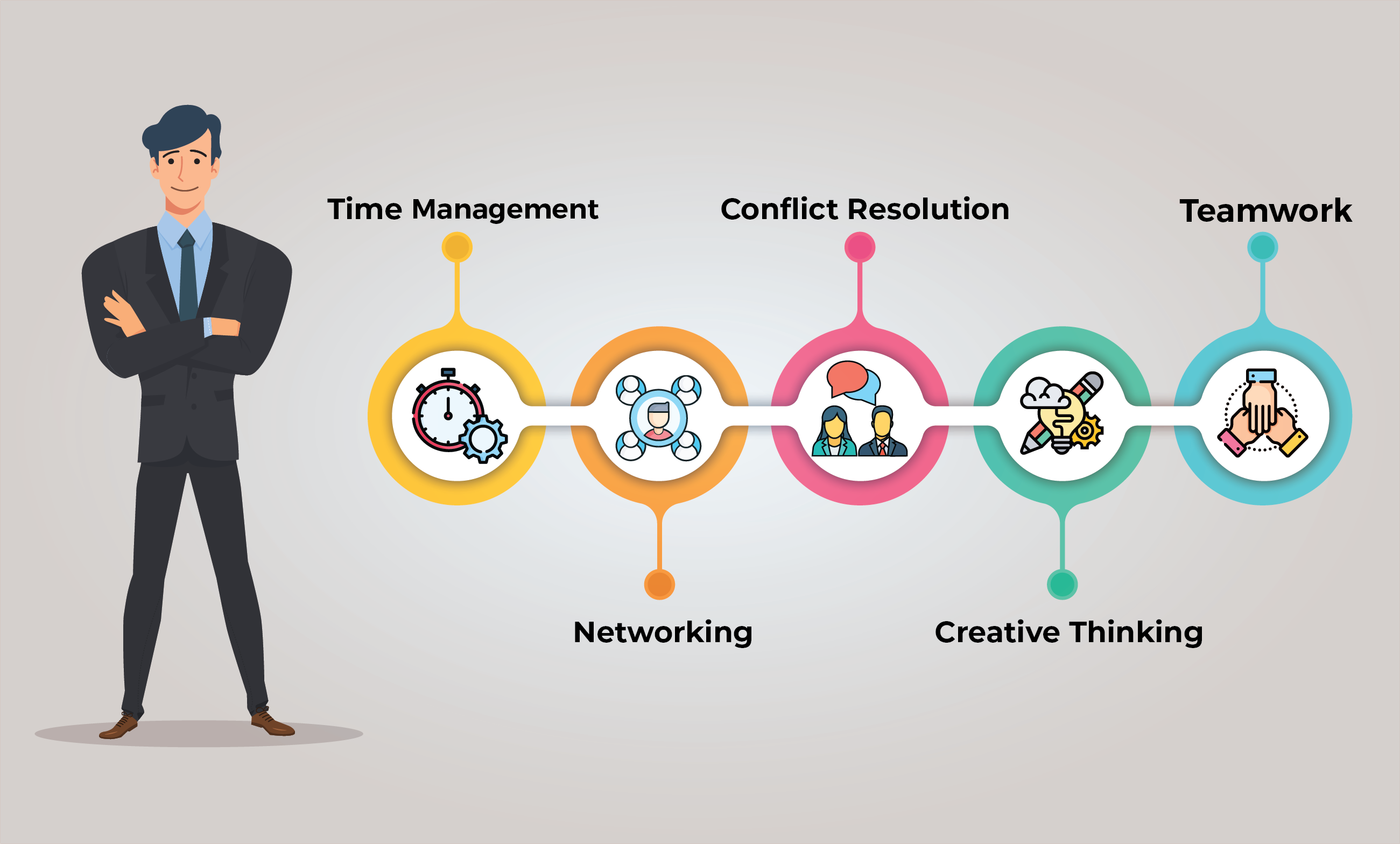
Introduction
In today’s fast-changing job market, technical expertise alone is no longer enough to secure a successful career. Employers increasingly value soft skills—personal attributes that enable individuals to work effectively with others and adapt to workplace challenges. While schools focus on academic knowledge, they must also prioritize teaching these essential skills to prepare students for the workforce. This blog explores the significance of soft skills, the most in-demand ones, and how educational institutions can integrate them into their curricula.
What Are Soft Skills?
Soft skills are interpersonal and behavioral attributes that influence how individuals interact in the workplace. Unlike hard skills, which are job-specific and measurable, soft skills are transferable across professions and industries. These skills shape a person’s ability to communicate, collaborate, and lead effectively.
Key soft skills include:
- Communication Skills – The ability to articulate thoughts clearly, both verbally and in writing.
- Teamwork and Collaboration – Working effectively with diverse groups to achieve common goals.
- Adaptability and Flexibility – The ability to adjust to new challenges and changing environments.
- Critical Thinking and Problem-Solving – Evaluating situations logically and making informed decisions.
- Emotional Intelligence – Understanding and managing one’s own emotions while empathizing with others.
- Time Management – Prioritizing tasks efficiently to meet deadlines.
- Leadership and Initiative – Taking charge and motivating others toward shared objectives.
Why Are Soft Skills Important in Today’s Job Market?
As industries evolve and automation replaces technical roles, the demand for soft skills has surged. Here are some key reasons why they matter:
1. Bridging the Skills Gap
Many employers report difficulty finding candidates with strong soft skills. A technically proficient employee who lacks communication or teamwork abilities may struggle in collaborative settings.
2. Enhancing Workplace Productivity
Employees with excellent time management and problem-solving skills contribute to efficient operations. Those who can resolve conflicts diplomatically foster a positive work environment.
3. Improving Career Growth and Leadership Potential
Soft skills help employees advance in their careers. Leadership, communication, and adaptability are crucial for managerial roles. Professionals who excel in these areas often progress faster than those who rely solely on technical expertise.
4. Meeting the Needs of Remote Work
With the rise of remote and hybrid work models, companies seek employees who can self-manage, communicate effectively online, and collaborate virtually.
5. Future-Proofing Careers
Automation is replacing routine tasks, but human-centric skills like emotional intelligence and creativity remain indispensable. Workers with strong soft skills can adapt to technological advancements and remain valuable in their fields.
How Schools Can Teach Soft Skills
Educational institutions must integrate soft skills training into their curricula to better equip students for the workforce. Here are effective strategies:
1. Incorporating Soft Skills into Classroom Activities
- Group projects encourage teamwork and collaboration.
- Debates and presentations enhance public speaking and communication skills.
- Case studies develop critical thinking and problem-solving abilities.
2. Emphasizing Experiential Learning
- Internships and work-study programs expose students to real-world professional settings.
- Community service projects cultivate leadership and teamwork.
- Simulated workplace scenarios help students practice conflict resolution and decision-making.
3. Integrating Soft Skills Training into Course Curricula
- Communication courses can include business writing and negotiation skills.
- Ethics and leadership courses can focus on decision-making and teamwork.
- Time management and organization techniques can be taught through structured assignments.
4. Using Technology to Foster Soft Skills Development
- Online collaboration tools (e.g., Slack, Zoom, Google Drive) prepare students for digital work environments.
- E-learning platforms offer courses on emotional intelligence, leadership, and interpersonal communication.
5. Encouraging Extracurricular Involvement
- Participation in clubs, student organizations, and competitions helps students develop leadership, teamwork, and time management skills.
- Volunteering initiatives promote empathy and adaptability.
The Role of Employers in Soft Skills Development
While schools play a foundational role, employers must also invest in soft skills training through:
- Onboarding programs that include communication and teamwork training.
- Continuous professional development courses in leadership and emotional intelligence.
- Mentorship programs that pair new employees with experienced professionals to cultivate workplace adaptability.
Conclusion
Soft skills are no longer optional but essential for success in the modern workforce. As industries evolve, educational institutions must prioritize teaching these skills alongside technical knowledge. Schools that integrate soft skills training into their curricula will better prepare students for the competitive job market. Likewise, professionals who actively develop these competencies will enjoy greater career success and adaptability in the ever-changing world of work.



